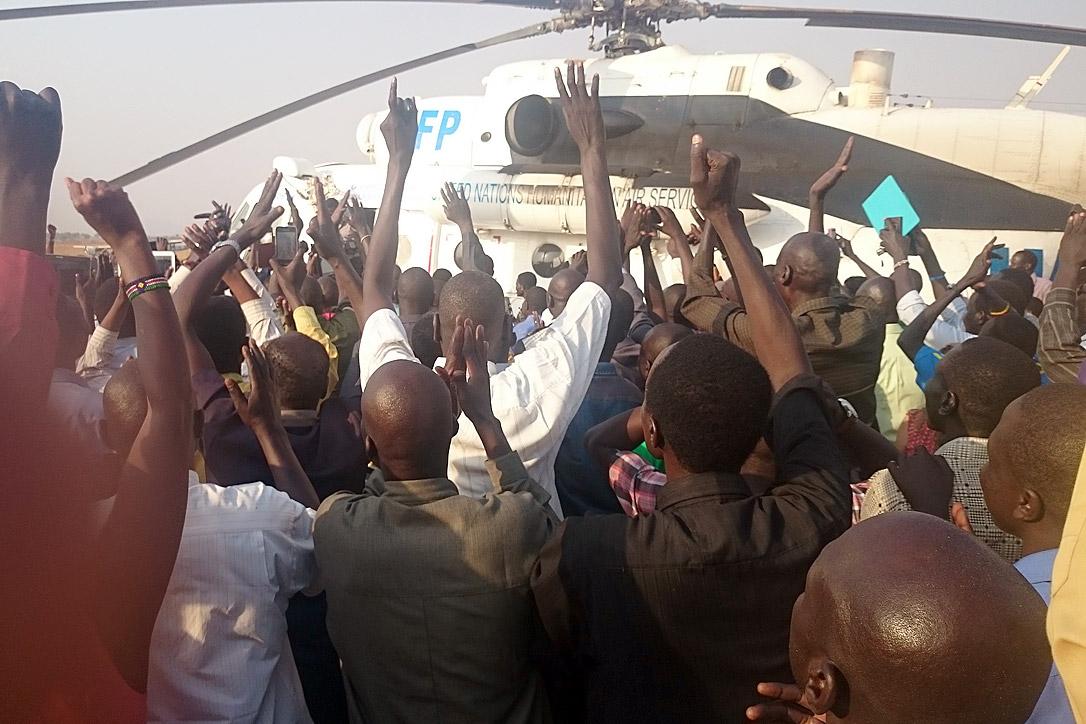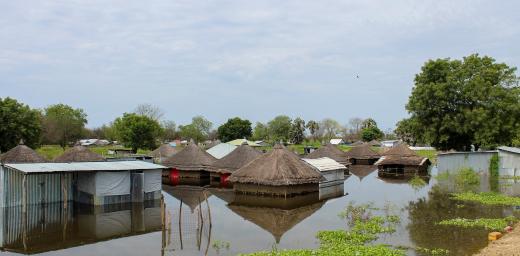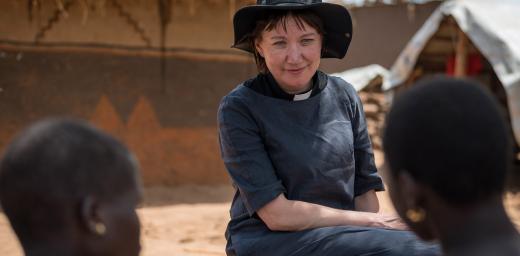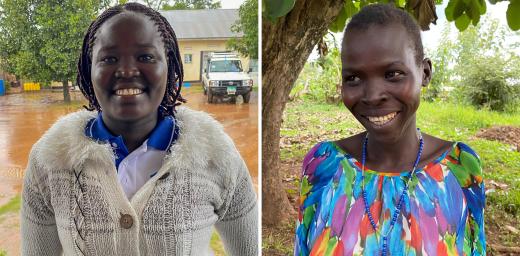LWF South Sudan Staff Arrives Safely in Juba

The returning LWF staff were welcomed by a crowd at Juba airport. Photo: LWF/E. Mpanya
Call for protection of the humanitarian space
(LWI) – LWF staff who were detained in Jiech while traveling on a UN flight in South Sudan have been released and arrived safely in the South Sudanese capital of Juba.
On 3 February, 2 LWF national staff and 2 LWF international staff travelled from Mabior to Juba in their professional capacity. They were using a United Nations Humanitarian Air Services (UNHAS) helicopter. When the helicopter landed in Jiech, three passengers including the two national LWF staff were withheld after which the helicopter continued to Bor. In Bor the remaining passengers were detained while the UN was asked to resolve the issue of the passengers remaining in Jiech.
On 5 February, the UN was able to negotiate the release of the staff withheld in Jiech and ensure that they were transported to the capital of Juba. The staff detained in Bor were allowed to proceed to Juba one day later as well.
“We are grateful that our colleagues are safe and back in Juba,” says Emile Mpanya, LWF World Service country representative in South Sudan. “This incident, however, is an expression of the shrinking humanitarian space, which we view with great regret. Both our international and national colleagues are humanitarian workers deeply committed to serving people in South Sudan. It is worrisome that a humanitarian flight is directly targeted as we have seen in these last days. The LWF has been present in South Sudan providing humanitarian aid and development assistance for over three decades. We are committed to keep serving people in South Sudan but we need to ensure that this can be done without putting our colleagues at risk.”
LWF supports people displaced by the ongoing conflicts in South Sudan. In working with local authorities, communities and organizations, LWF provides humanitarian assistance to disaster-affected populations through primary and secondary education, child protection, psychosocial support, water sanitation and hygiene (WASH), non-food items (NFI) and assistance in rebuilding livelihoods.
LWF serves all people irrespective of ethnicity, gender, religion, race, or political conviction.





